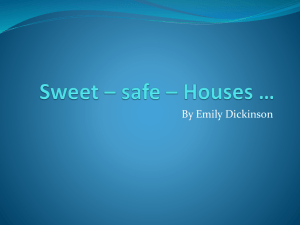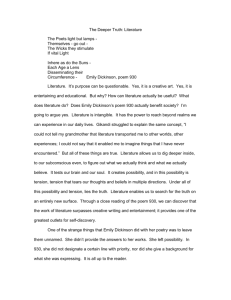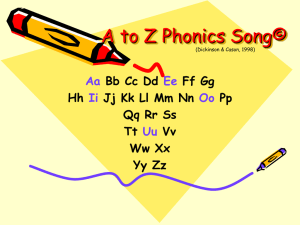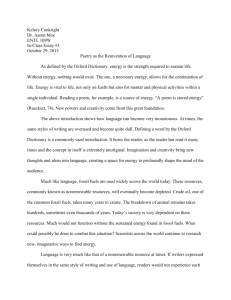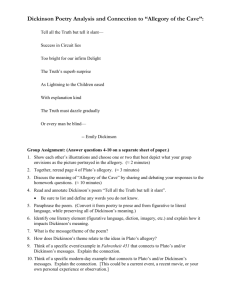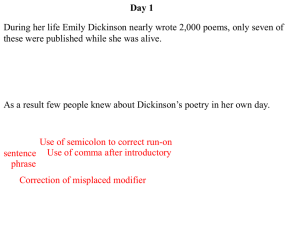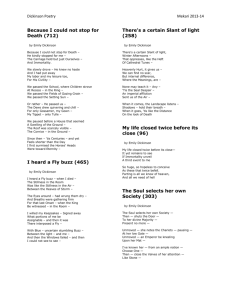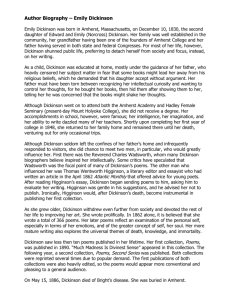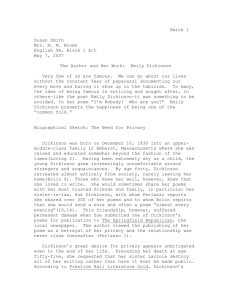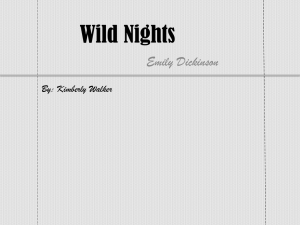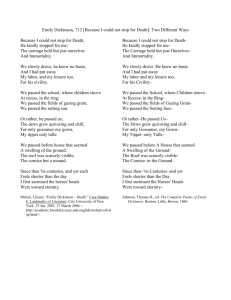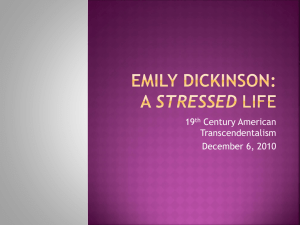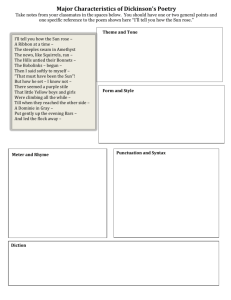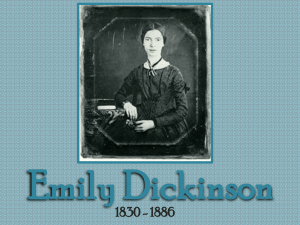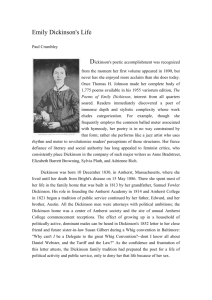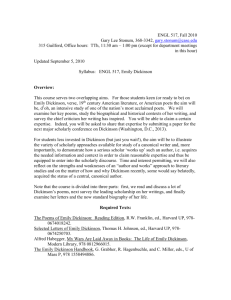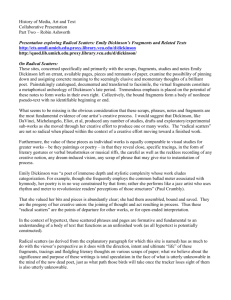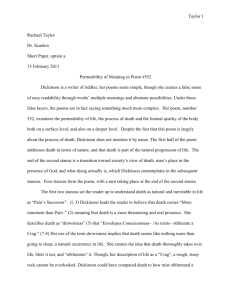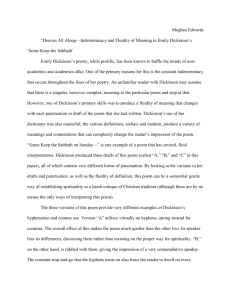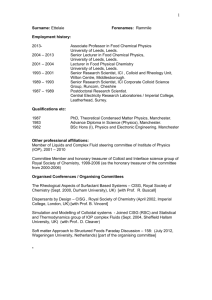Possibility-The Energy for Survival
advertisement
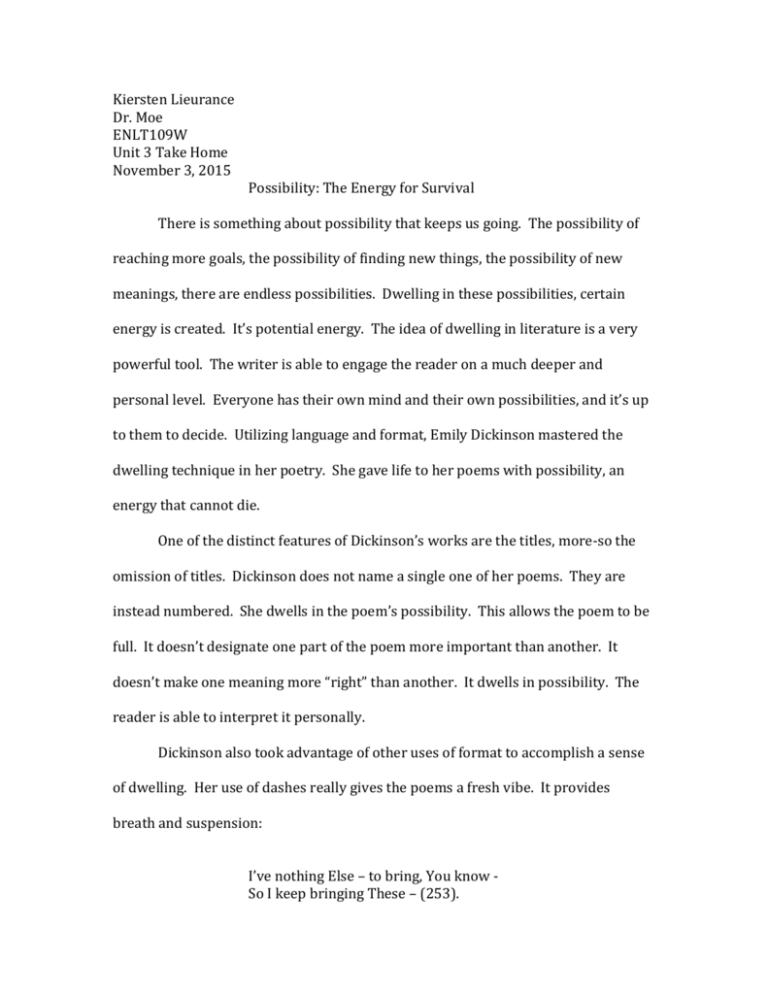
Kiersten Lieurance Dr. Moe ENLT109W Unit 3 Take Home November 3, 2015 Possibility: The Energy for Survival There is something about possibility that keeps us going. The possibility of reaching more goals, the possibility of finding new things, the possibility of new meanings, there are endless possibilities. Dwelling in these possibilities, certain energy is created. It’s potential energy. The idea of dwelling in literature is a very powerful tool. The writer is able to engage the reader on a much deeper and personal level. Everyone has their own mind and their own possibilities, and it’s up to them to decide. Utilizing language and format, Emily Dickinson mastered the dwelling technique in her poetry. She gave life to her poems with possibility, an energy that cannot die. One of the distinct features of Dickinson’s works are the titles, more-so the omission of titles. Dickinson does not name a single one of her poems. They are instead numbered. She dwells in the poem’s possibility. This allows the poem to be full. It doesn’t designate one part of the poem more important than another. It doesn’t make one meaning more “right” than another. It dwells in possibility. The reader is able to interpret it personally. Dickinson also took advantage of other uses of format to accomplish a sense of dwelling. Her use of dashes really gives the poems a fresh vibe. It provides breath and suspension: I’ve nothing Else – to bring, You know So I keep bringing These – (253). The dashes provide substance and character. The reader lingers on the dash in between the phrases, dwelling in the moment and the possibility for what could happen next. She provides questions for the reader indirectly, but also directly: How far is it to Heaven? As far as death this way – (965). Bluntly providing a question for the readers, Dickinson triggers the imagination. Can a question be answered one single way? The possibilities go on. Questions and dashes allow Dickinson to lead her readers to dwell in possibilities. Dickinson’s literary powers outstretch her ability to utilize punctuation, however. Her language in itself is powerful: We outgrow love, like other things And put it in the Drawer Till it an Antique fashion shows Like Costumes Grandsires wore (1094). While traveling through this poem, my mind is always questioning. What other things do we outgrow? What happens once we put them in a drawer? Is it a good thing to put them away in a drawer? Or are we trying to hide something? Are these memories painful? The list could go on and on. Dickinson discussed a topic without an answer. We dwell in what could be and what was. She speaks to us in ways that strike out emotions. Her words reflect our memories and shine light on what we have yet to see. Dickinson’s works allow us to dwell in the moment. Just like the dashes she utilizes so frequently, we are lingering, stuck in between the past and the future. Her language and formatting provides a sense of possibility in her poetry. She creates energy full of life for her readers. To dwell is to live fully. In every moment that passes, more events than we can physically recognize are happening. Dickinson makes time stop, however, and allows us to dwell in what is happening and in what could happen. To be able to experience this is to experience life. Works Cited Dickinson, Emily. The Poems of Emily Dickinson. Reading Edition. Massachusetts: Harvard UP, 2005. Print.
